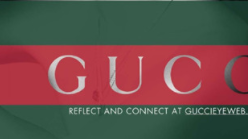

Does your Chinese brand name mean what you want it to? As we have discussed before, choosing an appropriate Chinese name can be a big challenge for foreign brands. In this issue, we will look at two case studies, one from sportswear and one from fashion. Although a Chinese name may be similar to the original brand name in pronunciation, the meaning behind the characters should also be carefully considered.
As you can see from these examples, sometimes a foreign brand may be saying “horse” when they really mean “cat”, or “traditional” instead of “high fashion”!

Cantonese: biu1 ma5
彪: tiger-like, strong
马: horse
Chinese name association: literally means strong horse, which in traditional Chinese culture represents long-lasting strength and elegant success. This gives the name an athletic and dynamic feel.
Chinese naming issue:
Lion vs horse: Puma in English literally means Cougar, the native lion from North America, reinforced by the jumping image of the cougar. Yet, its Chinese name turns out to be a horse, which might cause some image confusion in consumers’ minds.
Wild vs mild: In Chinese culture, the horse is a mild animal in nature, not wild enough to lead the herd, to manifest innovation or individuality. On the contrary, the Cougar is a wild/ferocious animal that shows its power, energy and leadership at all times.
Search Engine Findings:
| PUMA | 彪马 | |
| 51,300,000 | 9,170,000 | |
| Baidu | 6,060,000 | 9,770,000 |
1) The English name far outweighs the Chinese name in total.
2) The English name enjoys more results in Google, whereas the Chinese name is more popular on Baidu.
3) Great efforts should be made for the Chinese name to make up the gap in performance with the English name.
Brand information relevance:
The official website ranks No. 1 in Google, either with the English or the Chinese name
The official website ranks No. 1 in Baidu, except for the promotional links from Baidu

Cantonese: gu2 kei4
古: ancient, antiquity
琦: fine jade, distinguished
Chinese name association: literally means antiquity and preciousness, indicating a strong sense of history and a long tradition or inheritance.
Chinese naming issue:
Tradition vs modern: its Chinese name over emphasizes the tradition part and thus seems too conservative. It is not trendy/modern enough for the ever-changing fashion world.
Eastern vs western: The name has too strong of a Chinese evocation, as western heritage represents nobility, high end and luxury, especially in the fashion and life style industry. Gucci’s Chinese name sounds more like an eastern antique store specializing in Chinese articles.
Search Engine Findings:
| GUCCI | 古琦 | |
| 58,400,000 | 1,400,000 | |
| Baidu | 21,700,000 | 4,760,000 |
1) The English name far outweighs the Chinese name in total.
2) The English name enjoys more results in Google, whereas the Chinese name is more popular in Baidu.
3) Great efforts should be made for the Chinese name to make up the gap in performance with the English name.
Brand information relevance:
The official website ranks No. 1 in Google, either with the English or the Chinese name;
The official website ranks No. 3 in Baidu, with two promotional links from Baidu.
**The analysis was conducted on the most popular and well-known Chinese name for Gucci. Since then, Gucci has officially updated its Chinese name to 古驰**
So what can we learn from these case studies?
Firstly, we can see that having a Chinese name is important for Chinese search engine users, who often prefer Baidu over Google. The Chinese name performance for彪马 [biāo mǎ] and古琦 [gǔ qí]on both Google and Baidu needs to be improved.
Secondly, the Chinese name should not only be chosen for phonetic similarity, but take into account the underlying meanings of the characters. The connotations should be consistent with the original brand names to prevent confusion for consumers.
Luckily, Puma and Gucci are very well known international brands, and it is likely that consumers in modern Chinese cities are somewhat familiar with what the brands stand for. However, to connect with consumers that may not be so aware of the original brands, these Chinese names could turn out to be slightly confusing. So, it is preferable to develop an effective Chinese name right from the start in order to build your brand equity in China.
A Labbrand Group Company © 2005-2024 Labbrand All rights reserved
沪ICP备17001253号-3* Will be used in accordance with our Privacy Policy
To improve your experience, we use cookies to provide social media features, offer you content that targets your particular interests, and analyse the performance of our advertising campaigns. By clicking on “Accept” you consent to all cookies. You also have the option to click “Reject” to limit the use of certain types of cookies. Please be aware that rejecting cookies may affect your website browsing experience and limit the use of some personalised features.